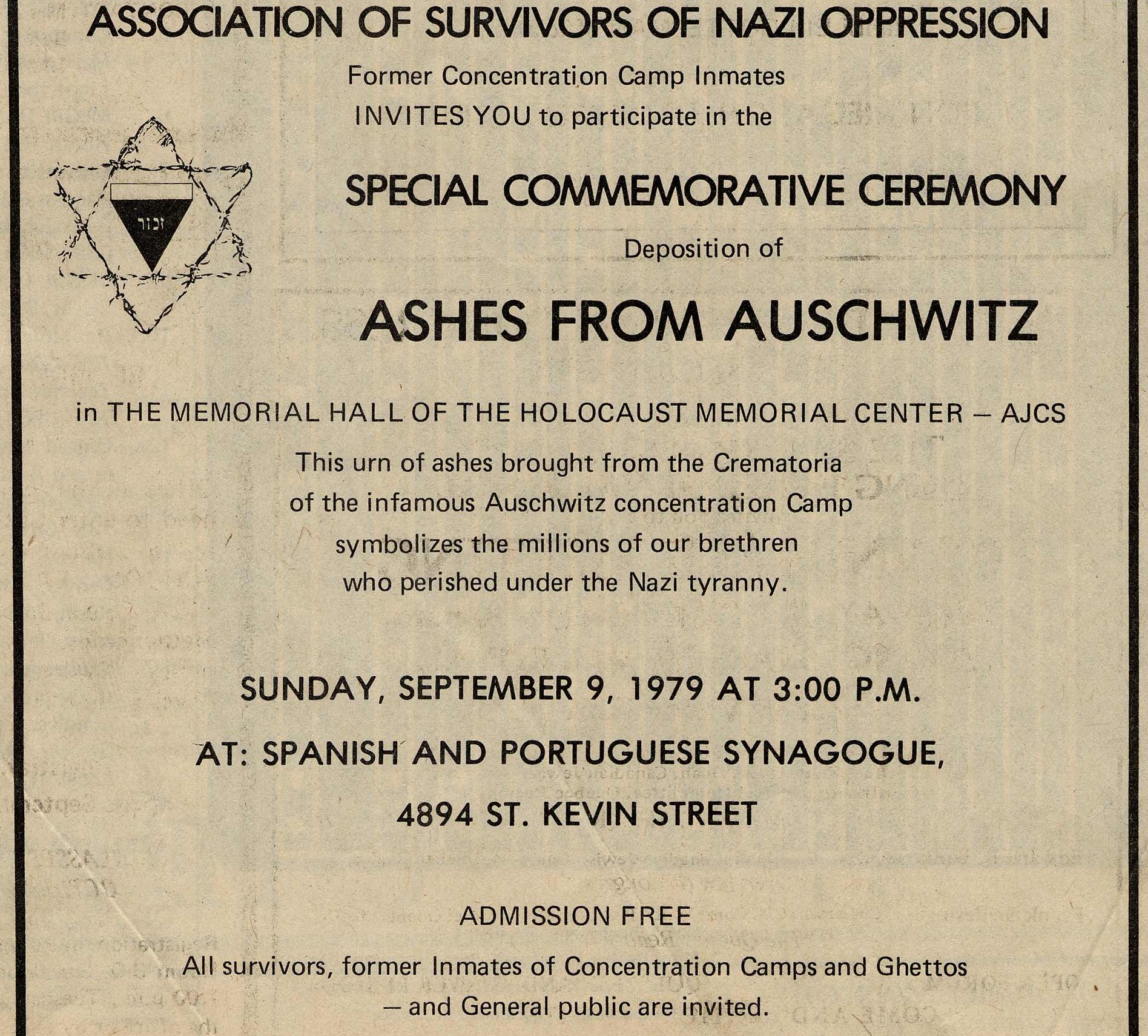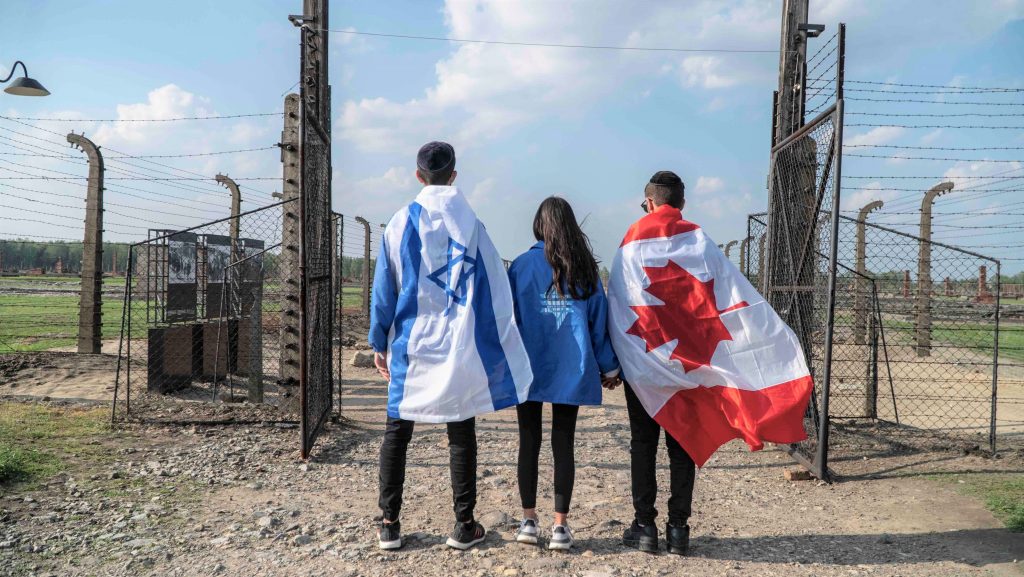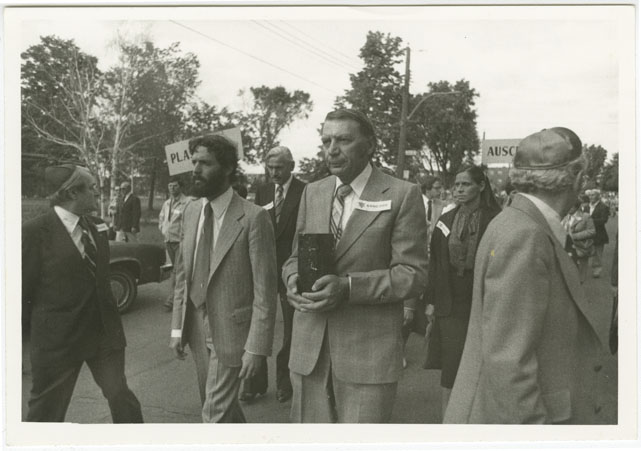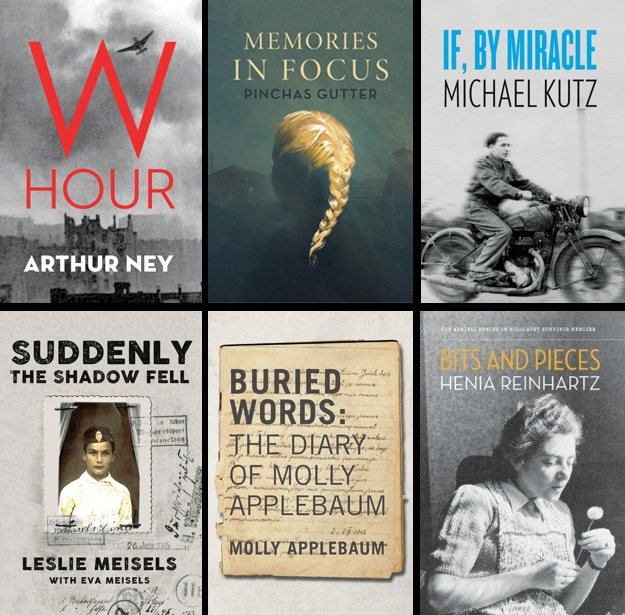Module 5: Memory and the Holocaust
Holocaust Remembrance in Canada

‘‘Interest in the Holocaust was late in coming [and that] for the first twenty years after the war, Canadians knew little about the event.”
Franklin Bialystok, Delayed Impact: The Holocaust and the Canadian Jewish Community, (Montreal: McGill-Queen’s University Press, 2000), 6.
Holocaust Remembrance in Canada: The Early Years
In this lecture, Dr. Tesler-Mabé examines how the Holocaust was understood and commemorated in the early postwar period. Specifically, you will explore the complexities of Holocaust remembrance in Canada during and after the war and consider these outright commemorative expressions.
Guest Lecture: Dr. Franklin Bialystok
In the following guest lecture and assigned reading, Dr. Franklin Bialystok describes the evolution of Holocaust memory in Canada.
Delayed Impact: The Holocaust and the Canadian Jewish Community
March of the living

Courtesy of March of the Living
“Since 1988, some 100 Canadian Holocaust Survivors have traveled to Poland and Israel on the March of the Living along with approximately 13,000 Canadian participants, sharing their stories of love and loss, and the lessons of the Shoah, in the very places their painful experiences transpired.” —March of the Living Canada
Listen to Holocaust survivors share their experience of travelling to Poland and Israel on the March of the Living and sharing their stories with the younger generations.
For more information about the program click here.
Montreal Holocaust Museum

‘‘The Montreal Holocaust Museum: the only recognized Holocaust museum in Canada that tells the story of the Holocaust.’’
It was founded by a community of survivors who immigrated to Montreal after the war. Montreal welcomed approximately 10,000 Holocaust survivors, of whom nearly 4,000 are still living in the city. The museum’s collection is largely made up of their testimonies and personal objects. —Montreal Holocaust Museum
The Azrieli Foundation: The Holocaust Survivor Memoirs Program

“In telling these stories, the writers have liberated themselves. For so many years we did not speak about it, even when we became free people living in a free society. Now, when at last we are writing about what happened to us in this dark period of history, knowing that our stories will be read and live on allows us to feel truly free.”– David J. Azrieli z”l, C.M., C.Q., M.Arch.
The Holocaust Survivor Memoirs Program’s education team connects teachers and students across Canada to these first-hand accounts by working with educators interested in using survivor memoirs to teach their students about the Holocaust. The program trains teachers in how to use the free educational materials and resources — memoirs, education programs and lesson plans, short films and the innovative digital resource, Re: Collection. In 2019, school programming and teacher workshops were held in over thirty Canadian cities and over 6,000 English and French speaking students had the opportunity to meet Holocaust survivors. For the first time, program staff went to Red Deer, Alberta and Digby, Nova Scotia, and travelled as far as Whitehorse, Yukon and Yellowknife, Northwest Territories. The Azrieli Foundation’s commitment to Holocaust education remains strong as the Holocaust Survivor Memoirs Program expands to support and encourage more and more educators in Canada to teach the Holocaust. —The Azrieli Foundation

